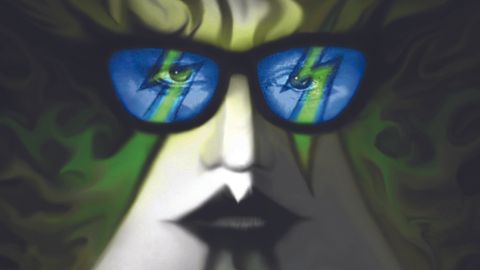Anomaly, Ace Frehley’s fifth solo album, from 2009, encapsulates the original Kiss guitarist’s personality to a tee. Strip away all the flash-bombs, smokin’ guitars and well-documented addictions and you’ll find a tender soul; someone who wears his heart on his sleeve – even if said sleeve is part of a cheap tinfoil spacesuit.
The album begins in fine style with the raucous Foxy & Free, the pace not letting up for second track Outer Space. The lumpen Pain In The Neck is a bit of a misstep, and a version of Sweet’s Fox On The Run is as throwaway as they come, but the album really hits its groove (pun intended) with the sprawling six-minute mini-epic Genghis Khan. (The moment when Ace bellows ‘Genghis!’ never fails to bring a smile to the face.)
Talking of which, Too Many Faces has hints of paranoia, Ace maybe recalling his days in make-up with the words: ‘Too many faces in the mirror, looking back, looking back at me.’ Elsewhere, A Little Below The Angels deals with Frehley’s battle with alcoholism and features a sweet cameo from his daughter Monique, while It’s A Great Life (subtitled Don’t Let Gene Drag You Down) could perhaps be described as Ace’s very own My Way.
In addition to the original album, this remastered edition includes three bonus songs: Hard For Me (previously unreleased), Pain In The Neck (previously unreleased slower version) and The Return Of The Space Bear (first time on CD). Aces high? You betcha.


